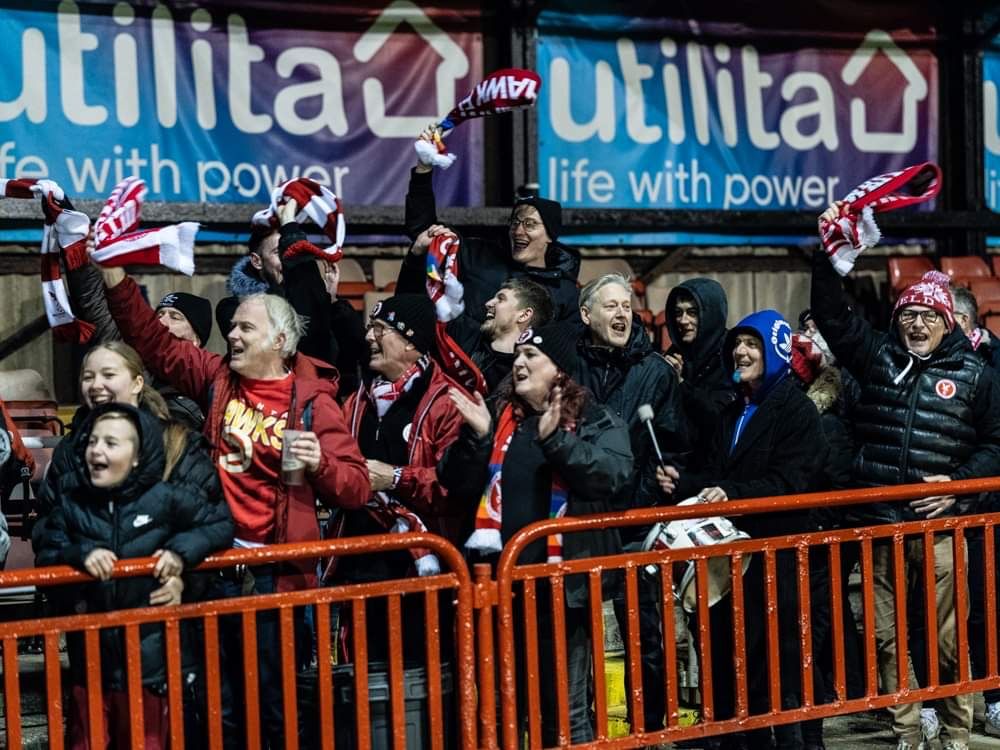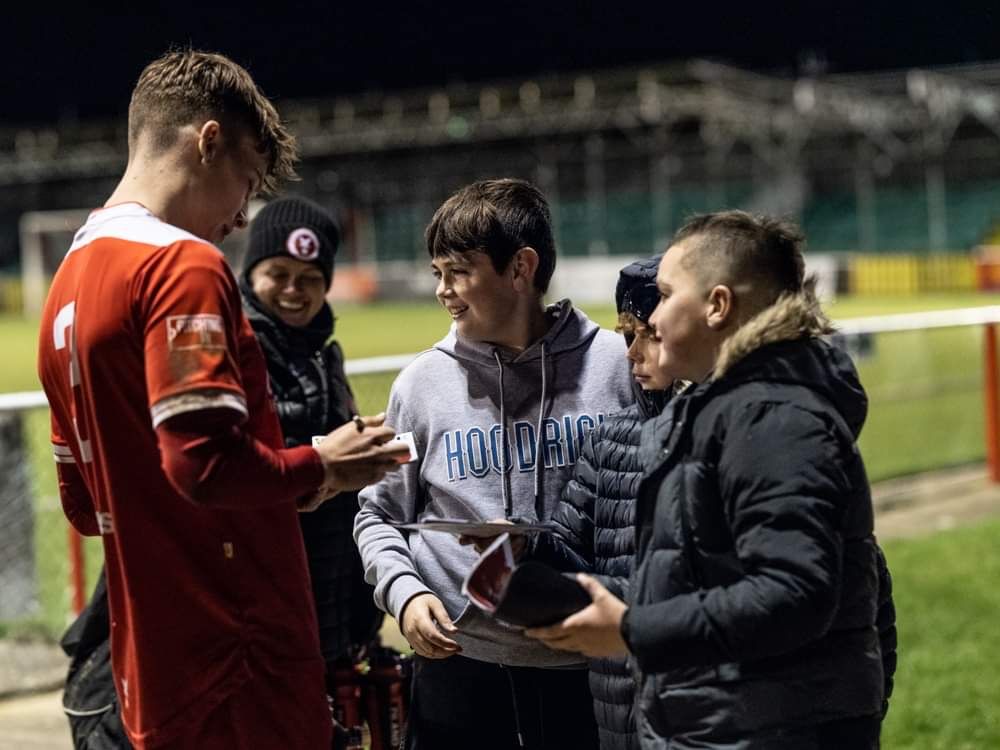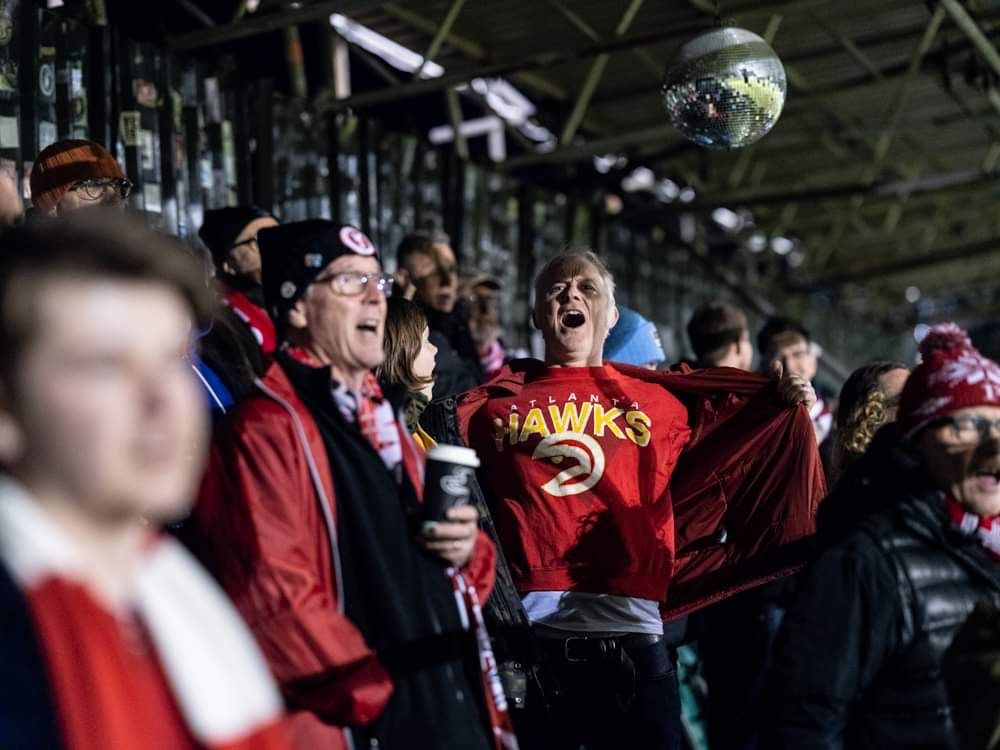Whitehawk FC: The Remarkable Story of a Brighton Football Club Doing Things Differently
Fred Garratt-Stanley takes a look at the history, community, and culture of Whitehawk FC, ‘where football's for all’.

Led by a Japanese winger who published a university thesis on dribbling and a Colombian wonderkid with a £90m price tag, Roberto De Zerbi's Brighton & Hove Albion side is tearing up the Premier League, writes Fred Garratt-Stanley. For the first time in the club's history, European qualification is on the cards. But as the gap between rich and poor in football continues to grow, many residents of the city have been priced out of attending top-flight games and alienated by the sport's ever-increasing greed and glamour. Many people are seeking something more wholesome, more relatable, more closely tied to the community. Thankfully, there's another team in Brighton that fits that mould.
Whitehawk Football Club was formed in 1945, amidst the rubble of World War II. The club soon became a source of local optimism, as Whitehawk charged up the leagues and established themselves as one of Sussex's strongest outfits. For several decades, they remained at County level; however, in recent years, an impressive upward trajectory has taken place. Successive promotions lifted them to the National League South (England's sixth tier) in 2013, and in 2015-16 they were agonisingly close to reaching the third round of the FA Cup, a remarkable achievement for a club of their size. They've since dropped back down to the Isthmian League South East Division (Tier 8) but, as I write, Whitehawk are on the hunt for promotion.
"Whitehawk's a very misunderstood place," says diehard fan Marc Gorry, chatting to me on the sidelines of a floodlit pitch tucked in the corner of East Brighton Park. We're at the Enclosed Ground, the club's home since 1954. It's a charming but slightly ramshackle 2,500-capacity stadium built into the side of a steep South Downs hill, with a pitch that's almost as sloped. Gorry is a local lad who's committed to changing people's perceptions of the Whitehawk estate, an area that has been stigmatised heavily by the rest of Brighton & Hove. One factor that's aided this goal is the on and off-field growth of his football club, which is firmly embedded within the local community.

"We've all grown up in a community where we were literally seen as worthless," he says. "Positive change and Whitehawk are not things that went hand in hand […] but kids nowadays are seeing Whitehawk as more of an opportunity than a hindrance." He describes a community spirit of togetherness, an "old school mentality" where people look after each other, and ultimately 'embrace the shitness of it and use that as your leverage to push forwards'. His reflections on the local area are fascinating, but they distract me slightly from the action on the pitch and, as we speak, Whitehawk FC are taking part in arguably their most important game of the season—a massive promotion clash with 2nd-placed Chatham Town, where a win for Whitehawk would see them leapfrog the visitors. This would be a huge achievement, although ultimately, promotion is not the be-all and end-all for those who run the club.
Whitehawk's mission is to unite people through football. According to Equalities and Diversity Officer Sophie Cook (the founder of Whitehawk's LGBTQ+ team Rainbow Rovers and the first transgender woman to work in English professional football), "we’re a club with a global reach and global concepts of how you make the world a better place through the power of football." Featured in BT Sport's Hope United documentary, her comments highlight the importance of accessibility and inclusion at Whitehawk. These are values central to the work of the club's Ultras, a group of fans from across the city who have subverted the often nationalist, right-wing associations of the European football 'Ultra' to foster a more positive, progressive form of fan culture. Their witty, spontaneous chanting has become the soundtrack to each home match, their message summed up by the song "We're Whitehawk FC, where football's for all".
After grabbing a pint and finding a spot behind the goal in the stand nicknamed 'The Din', I spend 45 minutes with the Ultras, amongst a cacophony of cowbells, drums, and chewy toys (yep, that's right). They crack jokes about players, lightly mock rivals like Littlehampton, and crowbar the words 'Toyota Yaris' into as many chants as possible (before you ask, no, there's basically no reason for this). The atmosphere is friendly, welcoming, and spontaneous, as fans riff on match incidents and sing everything from the Chatham put-down "You're just a chip shop in Maidstone" to a reworking of Rihanna's 'Umbrella' centred around the lyric "You can stand under our can of Stella". Eschewing aggression, avoiding swear words, and shouting anti-racist, anti-sexist, and anti-homophobic chants, they create a mood that's genuinely different to any football atmosphere I've seen before. It's a testament to a broader movement of fans shaping non-league football for the better.
"Non-league football is on the up," says Whitehawk's Commercial Manager Kevin Miller. Despite constantly buzzing around the ground, speaking to staff and fans, and making the occasional PA announcement, he's generous with his time, keen to share the club's message. "There's a real connection," he says. "People want to come back to their local communities and embrace and enjoy what's going on." He explains how a drive to bring local students down to the Enclosed Ground (literally—the club coach picked them up from their uni halls) has "created a new generation of fans who had perhaps not been to non-league games before." Coupled with the club's efforts to provide a safe haven for all kinds of supporters, the demographic at Whitehawk has shifted decisively.
That being said, no one's being left behind. Self-proclaimed super fan Simon Stevens was born and raised on the Whitehawk estate and, despite moving to North-West London years ago, he still travels back for every game. "I love it," he tells me, taking a breath between passionate chants and chats with passing mates.
There's different characters there, some that were there before me, and there's a lot of new people […] all that Kev [Miller] does, and [chairman] Andy [Schofield] does to promote our message, that attracts a certain kind of like-minded people […] they come and they stay, they fall in love with it.

Stevens is one of many born-and-bred Whitehawkers who have supported the club through thick and thin. In fact, there's one here tonight who's arguably doing more to progress the current squad than anyone—First Team Manager Shaun Sanders, a man who grew up on the estate, and whose deep local connection is evident in the bond he has with the fanbase. Since his arrival last summer, he's turned a relegation-threatened team into serious promotion contenders, capable of playing excellent football and digging in to grind out results. On my cold Tuesday evening with the Hawks, it's more of the latter; Whitehawk fight their way to a huge 1-0 win that takes them up to second place. There's a gutsiness to the performance, a resoluteness, and a passionate, firm approach to defensive duties that reflect the strong, tight-knit mentality Sanders has fostered. This could well be their season.
But even if promotion is secured, it's still early days in terms of Whitehawk's broader journey. The hard work of staff members and fans in reshaping the local area's wider perception and developing an atmosphere of diversity, inclusion, and community solidarity means the fanbase will likely continue expanding. Progression up the football pyramid will further fuel this growth. At the same time, the club remains proud of the neighbourhood it's based in, and committed to representing it, despite Whitehawk's growing appeal for wider Brighton & Hove.
Yes, there's the strong social media presence, the smart kit, and the well-shot YouTube documentaries about the team. But there's also the bitter sea breeze, the cheap(ish) lager, the scaffold stand, and the old boys who tend the grass and flog the programmes. It's a winning combination. "You've got to mix the old with the new," says Kevin Miller. "That's what makes non-league so fantastic."
On Non-League Day this Saturday 25th March, Whitehawk FC face Cray Valley PM at The Enclosed Ground.



Comments ()